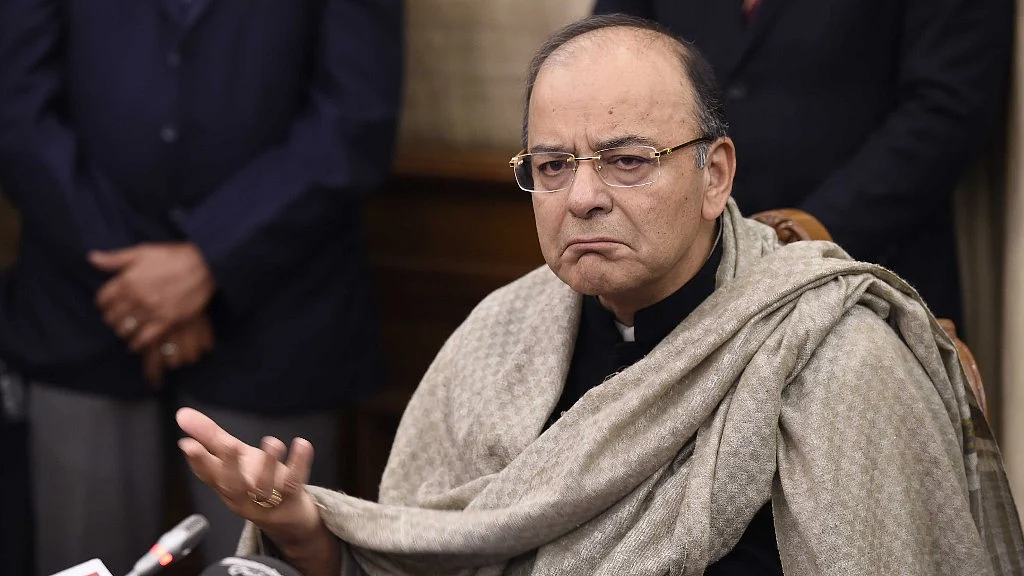Herald view: Cash Crunch—Time for the Government to overhaul banking
The Modi Government, as usual, took the easy way out by denying the existence of any crisis, contradicting itself the very next moment by saying that the situation would become normal in a few days

Reports of ATMs running dry and a minor run on the banks thereafter tell two stories. First that banks are still unable to get their basics right. After all, management and disbursement of cash is a basic function that banks are expected to perform. The second loud and clear signal is that cash is still king. There is acknowledgment that digital payments have dwindled and the government’s push for a ‘cashless economy’, a needless misadventure prompted by foreign and financial interests, has not really taken off. Claims by the Madhya Pradesh Chief Minister that there is a sinister conspiracy to create a ‘cash crisis’ and jibes by the Opposition on the government’s failure to ensure a steady supply of cash have contributed to the panic. The government, as usual, took the easy way out by denying the existence of any crisis, contradicting itself the very next moment by saying that the situation would become normal in a few days. To add to the mystery, the Finance Minister, who is working from home, tweeted that he had reviewed the currency in circulation and was convinced that the shortage was temporary.
Indians now know that traders, hospitals and even pharmacists insist on payments in cash, complaining that plastic money not only adds to their transaction cost but also involves delays that they are unable to bear. The suspicion that the government and the RBI are not being entirely truthful is also strengthened by reports that commercial banks have been writing to the RBI complaining of short supply of cash. In some states, irate depositors have taken to vandalising machines in frustration. And with the currency notes bearing the face value of ₹2,000 reducing in circulation, there is suspicion that cash is being hoarded by political parties for use in the Karnataka election. Demonetisation just ahead of the Uttar Pradesh election had affected all political parties except the BJP. A re-run once again of the post-demonetisation trauma just ahead of the Karnataka election, not surprisingly therefore, revived the old suspicion that the government is yet to allay.
A loud and clear signal is that cash is still king. There is acknowledgment that digital payments have dwindled and the government’s push for a ‘cashless economy’, a needless misadventure prompted by foreign and financial interests, has not really taken off
Bad loans and NPAs are hazards that banks are familiar with. Lending involves risks and thats why banks seek to secure loans with collateral. They also form credit committees to ensure checks and balances and to ensure that sanctioning conditions are met. But none of this appears to be working. There are other structural deficiencies in the banks. One is the credit-aversion of the banks with many bankers reluctant to stick their neck out and lend to corporate and industrial purposes and invite the possibility of legal action if they turn bad. Indian banks have also increasingly turned their attention away from lending to managing Mutual Funds and Insurance. A third criticism is the government’s insistence that banks , especially PSBs, manage pension payments, scholarships, wages under MGNREGA, linkage with Aadhaar, the PM’s Jan Dhan Yojana, etc. Managing and disbursing subsidies, education loans and farm loans are some of the other responsibilities that banks are saddled with.
While there is a clamour for privatising public sector banks and put the clock back on nationalisation, recent controversies surrounding the CEOs of the Axis Bank and ICICI Bank are pointers that private sector banks are not immune to either fraud or misgovernance. Nor will private sector banks be willing to perform the myriad non-profitable activities that PSBs have to do, or open branches in remote, rural areas. Former Prime Minister Manmohan Singh’s call to overhaul the banking system is, therefore, timely. The question is whether the government has the will and the ability to execute it.
Follow us on: Facebook, Twitter, Google News, Instagram
Join our official telegram channel (@nationalherald) and stay updated with the latest headlines
- BJP
- demonetisation
- Uttar Pradesh
- cashless economy
- Reserve Bank of India
- Central government
- cash crunch
- ATM
- Aadhar
- digital payments
- MGNREGA
- subsidies
- bad loans
- Axis Bank
- former Prime Minister Manmohan Singh
- Mutual Funds
- Non Performing Assets
- ICICI Bank
- Karnataka assembly elections
- PSB
- Overhaul banking
- cash crisis
- Madhya Pradesh Chief Minister Shivraj Singh Chauhan
- pension payments
- scholarships
- PM Jan Dhan Yojana
- education loans
- farmer loans